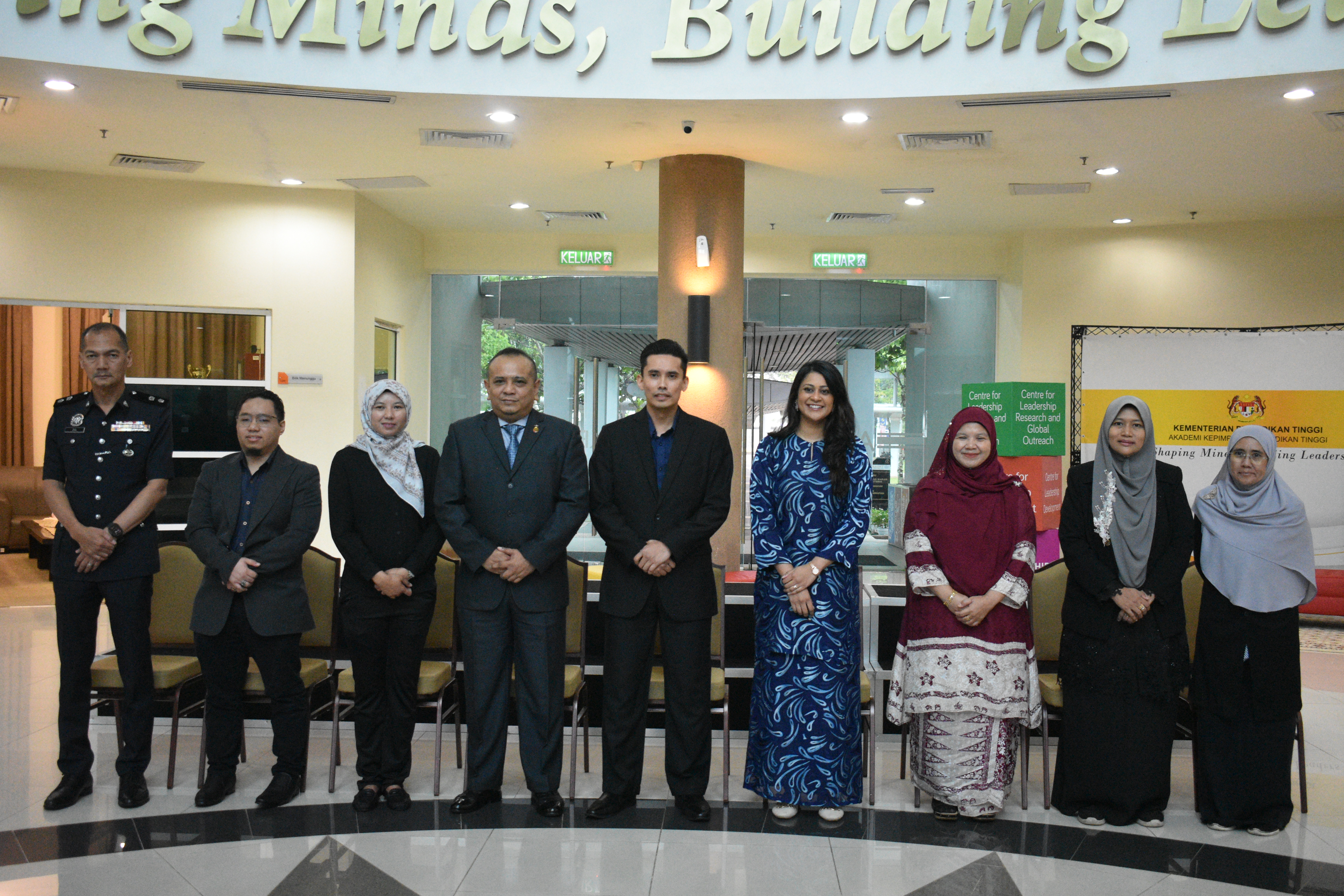
Asia Pacific University of Technology & Innovation (APU) continues to demonstrate the societal impact of its academics, as its Head of the School of Psychology (SoP), Ms Vinorra Shaker, made a significant contribution to a government-organised national seminar addressing the growing challenge of cybercrime.
National Seminar on Cybercrime
With cybercrime rapidly evolving in scale and complexity, the Institut Keselamatan Awam Malaysia (IPSOM), under the Ministry of Home Affairs (MOHA), in collaboration with Universiti Sains Islam Malaysia (USIM), organised the National Cybercrime Action Plan Seminar on 28 August 2025.
Held at the Akademi Kepimpinan Pendidikan Tinggi (AKEPT), Enstek, Negeri Sembilan, the seminar gathered experts, policymakers, and thought leaders from across the nation to strengthen Malaysia’s resilience against cyber threats.
APU’s Representation and Key Session
Representing APU, Ms Vinorra Shaker delivered a pivotal session entitled “No Cybersecurity without Cyberpsychology: A National Action Plan for Education and Psychosocial Support”. Her presentation underscored the indispensable role of cyberpsychology in complementing technological solutions and building sustainable national defences against cybercrime.
Cyberpsychology: A Human-Centred Approach
In her address, Ms Vinorra emphasised that technology alone cannot fully protect society from cyber risks. Human behaviour, motivations, and vulnerabilities play equally critical roles in both perpetrating and preventing cyber incidents. She outlined three key pillars that should form part of Malaysia’s cybersecurity ecosystem:
- Public awareness campaigns informed by behavioural science – fostering greater vigilance and responsible online behaviour among citizens.
- Victim support programmes that address psychosocial needs – ensuring holistic recovery for individuals affected by cybercrime.
- A national cybersecurity education framework – embedding cyberpsychology into training and capacity-building at multiple levels.
Her approach placed strong emphasis on understanding attacker psychology, mitigating human vulnerabilities, and nurturing a cybersecurity culture that integrates technical resilience with human-centred strategies.
Aligning with National Objectives
These perspectives were fully aligned with the core objectives of the seminar, which aimed to identify the types of cyber-enabled and cyber-dependent crimes prevalent in Malaysia; develop a comprehensive National Cybercrime Action Plan covering legislation, prevention, enforcement, education, and awareness; and recommend the establishment of an Integrated Cybercrime Database Centre under MOHA.
The seminar marked the culmination of a seven-month national study on cybercrime and brought together senior representatives from diverse institutions, including the Executive Director of ASEANAPOL, the Director of the Institute of Strategic & International Studies (ISIS) under the Prime Minister’s Office, and the Assistant Director of the Central Criminal Intelligence Unit (CCIU), Criminal Investigation Department, Bukit Aman.
Recognition of APU’s Leadership
Reflecting on her experience, Ms Vinorra shared, “Cybercrime is not merely a technical issue—it is a human one. The leaders I engaged with at this seminar recognised the importance of APU’s pioneering work in cyberpsychology.”
“They expressed a genuine interest in how our research and teaching are shaping a new generation of cyber-resilient professionals who can tackle threats from both technological and human dimensions. It is encouraging to see such alignment between academia, government, and industry in building a safer digital future for Malaysia,” she continued.
Reinforcing APU’s Societal Impact
APU’s representation at this prestigious national platform demonstrates the university’s enduring commitment to producing knowledge that serves society, while equipping future leaders with critical expertise.
Beyond nurturing its students, APU is also playing a vital role in shaping national strategies, providing thought leadership, and supporting the government’s mission to protect citizens in the digital age.
As cybercrime continues to evolve, the integration of psychology into cybersecurity is no longer optional, but essential. Through the contributions of its academics, such as Ms Vinorra, APU reinforces its standing as a forward-thinking institution—one that not only educates but actively influences policy, governance, and national resilience.
In doing so, APU proudly affirms its role as a trusted partner to government and industry, ensuring that Malaysia is prepared to face the challenges of the digital frontier with a holistic, human-centred approach.
News & Happening
Download e-Brochures
Intake Calendar
Want to know more ?
Let’s Connect